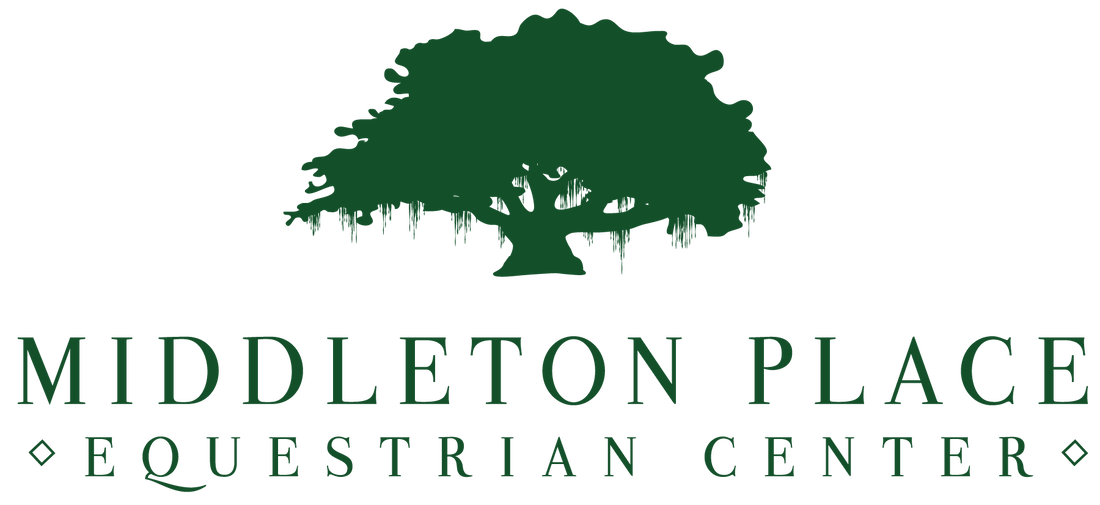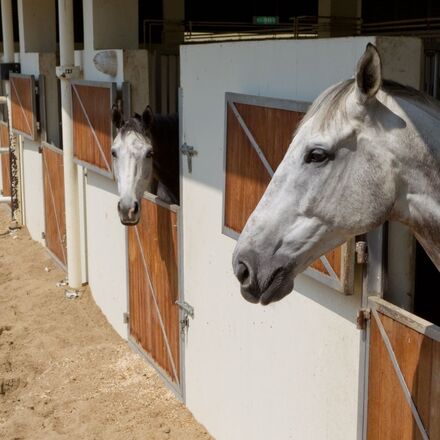 To kick off this New Year, we are going to be talking about one of our most important services and attributes; boarding your horse at Middleton Equestrian Center! Hello trail friends, a very happy new year to all of you! We hope you had a wonderful holiday season with your loved ones, and we hope you had the opportunity to take advantage of our last two blogs. We hope you took those tips and suggestions to heart to prepare your horses, stables, and barns for the cold winter weather that has finally arrived. While we might not see snow this year as our friends in North Carolina or our friends farther up north will, it has still been cold and wet here in the Lowcountry. Speaking of the Lowcountry, did you give the gift of Middleton this past holiday season? Or did you receive the gift of a trail ride with us? We can't wait to see you soon to celebrate that gift together. We are currently doing our Historic Trail Rides every day at 10 am, 12 pm, and 2 pm, with additional 4 pm rides on Friday, Saturday, and Sunday. We do prefer that you book your rides online, but you can also call us at 843-556-0449. Are you looking for the best trail rides and horseback riding in Charleston, South Carolina? You've found it! We have beautiful trails that intertwine through age-old treas, inspiring views of Middleton Place, and a guide that will accompany you to describe the history and stories we've seen and learned over the years. Middleton Place Equestrian Center is guaranteed to please all of your friends and family! We also ended 2020 on a high note, and were awarded Travelers Choice in 2020 by TripAdvisor! One of our most important services and offerings at Middleton is our horse boarding! We want to share more about it with you and talk more about it this year, so please make sure to keep up with our blog and contact us with any questions or comments. We are Charleston's premier boarding and training facility. Our boarding barns feature 46 spacious and well ventilated 12' by 12' stalls, wood shavings, individual fans, and thick stall mats. Our boarding includes feeding your horse high-quality grains and timothy/orchard hay 2-3 times per day based on each horse's individual dietary needs, owner-supplied medications and/or supplements, heightened turnout in one of our numerous large grass paddocks, stall maintenance, and seasonal blanketing. Staff members can schedule vet and farrier services as needed and perform deworming and vaccinations. For all of those new to Middleton Place Equestrian Center and to the idea of boarding your horse in South Carolina, we wanted to dedicate this blog to you and talk about some of the most important reasons and benefits of boarding your horse!
This list could go on and on trail friends, but these are the top benefits of boarding your horse and the many reasons why you should board with us at Middleton Equestrian Center. While boarding and its expenses might seem overwhelming to many new horse owners, think about all the time and money it will end up saving you overall. Also, consider the fact that you'll be able to spend more time with your horse doing exactly what you love. While you might not be able to hear or see them first thing in the morning, you also won't be getting up at the crack of dawn in the worst types of weather to care for them either. We would love to have you board with us! For more information or questions, please don't hesitate to reach out to us! Until next time, stay safe, and be well. We look forward to seeing you on our trails soon!
6 Comments
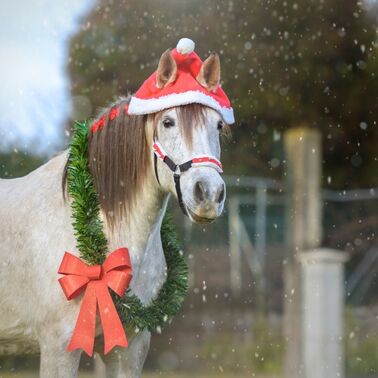 While we prepare for the holiday season and a brand New Year, don't forget about your checklist for preparing your horses, stables, and barns for the coming cold weather. Let's step into the New Year prepared and ready to keep you and your best friend happy and healthy! Hello, trail friends! Welcome back to the blog! We hope this bright and brisk holiday season has been off to a good start for you and your loved ones. We are feeling very festive here at Middleton, and everyone on our staff and each of our horses is so excited to see the holidays this year! While it might feel a little different than holidays gone by, there is still so much to celebrate! Are you still looking for the perfect gifts to give? Shop small and give big, give the gift of Middleton this year! Introduce your loved ones to the joy of horses or surprise the horse lover in your life with the perfect gift! To purchase your gift cards follow the link below! https://fareharbor.com/embeds/book/middletonequestriancenter/items/ Are you looking for the best horseback riding in Charleston? You've found it! While you're shopping and running around for everyone else in your life, take a moment and give something back to yourself! We are currently offering our stunning historical trail rides, which we know you'll love. Enjoy the beautiful (brisk!) Lowcountry winter weather, and the wonderful Lowcountry landscape while social distancing on the back of a beautiful horse! While we are all preparing for the holidays in our unique ways, we still need to remember our horses and their barns or stables this time of year. It will get cold soon and we need to prepare for a brand new year that is coming right around the corner. As our gift to you this holiday season, we wanted to share a checklist and some ideas on how to prep for the coming cold weather, and how to prepare for this upcoming new year! In this two-part blog series, our goal is to help you make this the safest season for your horse and yourself. It's time to get started if you haven't begun your wintertime prep, so let's get started together! WINTERTIME CARE CHECKLIST We are big proponents of being prepared. Getting ready for the changing seasons as soon as you can, can help keep you and your horses safe and healthy, and it can also help you save a ton of money and worry. While we in the Southeast might not experience below zero temperatures, bad ice storms, and feet of snow, these things are still possibilities on a much smaller scale. Temperatures will still be cooler, lots of rain and mud are in our future, and frost and ice will still be lingering the deeper we get into December and January. Please take this checklist and these preparations seriously. Your horses will be all the better for it! PRODUCT CHECK!
MAINTENANCE!
These items and this check-off list should be a good place to get help get you started. If you have any questions between now and part two of this blog, please don't hesitate to reach out to us! If you have any questions about quality products, care products, tools, or grooming products, please also don't hesitate to reach out. We are excited to help make this holiday a special one for you, your horses, and your loved ones. Maybe start by purchasing a gift card for your loved ones, check off as many of these to-do list items as you can between now and our next blog, and come visit us in the meantime. Even in these chilly temperatures, our trails are beautiful. Just wear a few layers, and you'll be all set to go! Don't forget, if your barn or stables aren't ready or equipped for the winter weather, we do offer boarding options for your horses and offer some of the best horse boarding's in South Carolina. If you're interested or have questions, please visit our website now or give us a call! Until we follow up with part two of this blog series, stay safe, and be well. We look forward to seeing you on our trails soon! 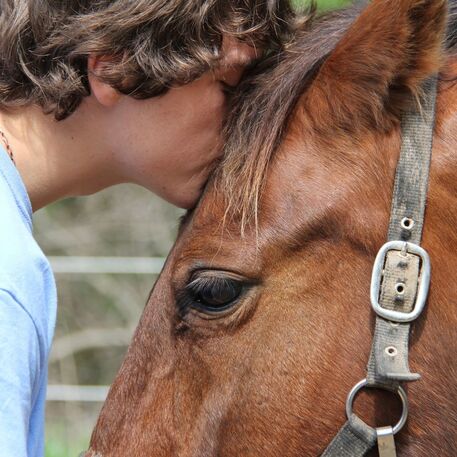 It's the season to be thankful and we have more reasons to be thankful than we can count. Through this crazy year, we wanted to make sure to pause and take a moment of reflection on why we are so thankful for our horses and our wonderful company! Hello, trail friends! Welcome back to our blog. We are taking a break from the trails, and while the horses take a rest and get a snack, we wanted to hop out of our saddles and back into our writing chair. We wanted to check in with all of our readers and supporters, too. We hope you're doing well, spending time with your horses as much as you can, and learning more about our favorite animals every day! With the holidays right around the corner, don't forget to support and love your favorite local small Charleston business. Give the gift of something unique and different this year! Give your loved ones an experience of a lifetime, and gift them with a ride on our amazing trails and the best horseback riding in Charleston! Or even gift yourself with something unique and special this year. Are you visiting our amazing city sometime soon or are you local and looking for something special to experience this holiday season? We can help with that! Make sure to check out the main page of our website and reach out to us to talk about all of your gift-giving needs. We are so excited to speak with you and to have you on our horseback riding trails soon! November is here and Thanksgiving is on our minds. Our horses are dreaming of some extra hay and maybe a few special treats or two. We are all dreaming about our turkey dinners and all the delicious fixings that come with it! Being thankful is also on our minds, and what we've been talking about a lot recently are all the reasons we are thankful for horses and our own personal list of thanksgivings that we've been able to get out of 2020. We thought we'd share our thanksgiving state of mind and pay it forward. In this week's blog, we are going to be talking about all the reasons we're thankful for horses and much more!
What are your favorite reasons that you're thankful for horses? We know the list is endless, and these are just a few of our favorite reasons that we are thankful for every day. Love and thanksgivings have no definition or an end when it comes to horses, and we are sure you understand that. We hope this is a joyful and loving Thanksgiving season for you and yours. Until next time, we look forward to seeing you on our trails soon! In this blog, we are going to be celebrating one of the most popular and oldest horse breeds in the United States, the American Quarter Horse.
Hello, trail friends! Welcome back to the blog! With the dawning of this new month, can you believe there is only a matter of weeks left until the new year? While the year is quickly ending and the weather continues to change, all of us here at Middleton Place Equestrian Center are here to offer the best trail rides and horseback riding in the Charleston area. The weather is still perfectly mild and wonderful to ride in. With beautiful trails intertwining through age-old trees, inspiring views of Middleton Place, and a guide to describe the history and stories we've seen over the years, a visit to Middleton Place Equestrian Center is guaranteed to please friends and family! We offer guided trail rides, tours of the property, and equine boarding with the best care. As of right now, due to the pandemic, please note that we are currently only offering historic trail rides! Enjoy the beautiful weather, the wonderful Lowcountry scenery all while social distancing on the back of a horse. We continue to adhere to the Governors guidelines to help keep our staff and clients safe. All saddles, bridles, and helmets are cleaned after every ride. We are very excited and looking forward to seeing all of you for your next ride very soon! While you are waiting to plan your next ride with us, we wanted to turn back to the history books. In this blog we are going to be sharing the history of one of the oldest and most popular breeds of horse right here in the United States; the American Quarter Horse! Considered one of the oldest and most beloved cultivated breeds in the United States, the Quarter Horse is an incredible example of the melting pot that the United States so proudly boasts to be. The breed itself came from a very long line of breeding some of the most influential and powerful horses from across the globe starting as early as 710. The breed itself saw its true beginning in the 1600s, during the early days of the American Settlers, and was officially solidified in the 1800s with the final addition to the breed, the Mustang. With the addition of the Mustang in its breeding, the modern American Quarter Horse was created and America had its own unique horse native to its shores. Wild Beginnings As we mentioned above, the very beginning of the American Quarter Horses' bloodline can be traced back to 710, when powerful horses were being bred between the North African Barb horses and the native Spanish stock horses. These horses were the ones that accompanied some of the very first Spanish explorers into the new world. They were also the same horses that were left behind by these very early settlers, and many of these horses swam ashore and survived multiple Spanish shipwrecks during these tumultuous years. We have talked about one lineage of these horses a few times throughout the blog, and those are the wild Corolla horses that have made the shores of North Carolina their home. These were not the only horse linage that came from these early settlement horses. Some came into the hands of the Chickasaw Indians that were native to Mississippi, Alabama, and Tennessee. Others went out west to become what we know today as the Mustang. When the second wave of colonists made it to the shores of America in the early 1600s, they brought English stock horses with them. These horses helped them settle the early colonies and survive some of the hardest and harshest years of American settlements. Once they were finally settled, decided they were going to stay, and survived those difficult and challenging years, they could finally have a pastime. One of the most popular pastimes of this generation became horse racing. Colonists were no longer fighting every moment to survive, so they could celebrate with a race or two. When this shift in society happened, the first step in breeding the Quarter Horse happened. Many settlers started trading for and riding the Spanish Barb horses that the Chickasaw Indians had cultivated, cared for, bred, and were known to ride. These horses were then bred with the English stock horses, and the first steps of the Quarter Horse were born. These horses would be bred and cared for over the next 150 years, and according to the American Quarter Horse Association, would become known as the "Celebrated American Quarter Running Horses". The name "Quarter" was given to the horses because this was the distance they were trained to run, about a quarter of a mile on flat grounds in and around colonial towns. The next wave in the development of this breed was in 1752 when a horse named Janus was brought over from England. This stunning horse was the grandson of one of the most influential horses for the foundation of the Thoroughbred horse, the Godolphin Arabian. Once Janus was bred with these blossoming colonial horses, the official prototype of the American Quarter Horse was born, according to the AQHA. These were the horses that lead Americans through the American Revolution and into the wild west and the new frontier. Frontier Horses Once the Atlantic coast had been settled, the itch to continue moving out west was born. American settlers began another great push into unknown lands and the Quarter Horse went with them. These horses, known for their short distanced speed, were now being bred for their stock and strength. Through the early years of the 1800s, this early breed of the American Quarter Horse would be bred with the last few bloodlines that would officially solidify the overall breed. Sir Archy was the first in this line, following by two influential horses named Printer and Tiger. The final piece of the puzzle to the American Quarter Horses bloodline was the powerful Mustang. These free-roaming horses, ancestors of the horses the Spanish explorers left behind, were what made the Plains Indians the strongest mounted warriors that anyone had ever seen, according to AQHA. These new powerhouse horses took settlers out west, help clear and plant this new land, and became the favorites of cowboys and farmers alike. Their strong, stocky, and muscled bodies were perfect for the harsh life and beginnings of the great west, and their gentle dispositions were perfect for caring and interacting with cattle. While farms started to spread across the frontier, so did vast cow farms, all thanks to the Quarter Horse. They were once used as sheer entertainment, and how now become the force of breaking into the frontier. Modern Marvels Today, these beautiful creatures are still bred to have the same features and personalities that broke open the wild west, they just aren't used to forge new lands and farm as they once did. Thanks to the foundation of the American Quarter Horse Association in 1940, the breed became official. New steps were now being taken to preserve the breed. Breeding the Quarter Horse follows incredibly strict guidelines today, and it is dedicated to perfecting the bloodline. The foal has to come from a registered mare and sire to be recognized by the association. They are only allowed to have very limited white markings on their faces and below their knees. There are also only 13 accepted colors recognized by the AQHA ranging from reddish-brown to a stunning grey. They are still known for their muscling, their gentle natures, temperament around cows, versatility, and sprinting speed. While they can still be used for farming, modern technology has moved the Quarter Horses focus and training towards excelling in almost every racing and skilled event that is popular today. With its versatility, the Quarter Horse has become known as one of the most popular breeds, with riding for enjoying being their owner's favorite form of recreation. What a stunning breed and powerful history! They are such influential horses that it is almost impossible not to come across a Quarter Horse at least once in your lifetime. You might even meet one or two at our stables! We hope you enjoyed the history of the Quarter Horse, and we hope this blog has inspired you to book your next visit with us! Until next time, stay safe and stay hopeful everyone! 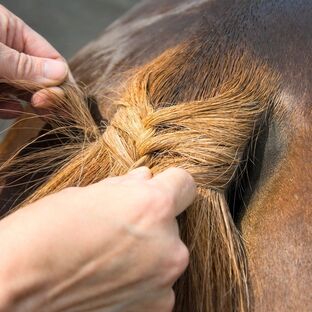 In the second part of this blog, we will be continuing our discussion on how to properly care for your horse's mane and tail. Hello, trail friends! Welcome back to the blog! We are thrilled you decided to come pay another visit to our blogs and continue to learn more about the care and maintenance that your horse's mane and tail requires. The end of October is right around the corner, so make sure you come and learn more about the history of our beautiful trails and the land we are connected to. There might even be a ghost story or two lurking in the shadows waiting to be told! Make sure to schedule your rides with us ahead of time and get ready for the best horseback riding trail in Charleston! We can't wait to see you soon! As we mentioned in our last blog, caring for your horse's mane and tail comes with a huge responsibility. This is just one of the multitude of things you need to take care of and care for when it comes to owning a single horse. We urge you to remember this when thinking about purchasing your very first horse or perhaps even your second. Every horse deserves every moment of meticulous and well-planned care as the next. We hope that you take these two blogs and every blog dedicated to the care of your horse to heart. We want both you and your horse to have an incredible life together. Please remember too that a horse is going to be a full life commitment, many of them live to be 20 years of age if not older. They will need your constant love, support, and care for every single one of those years! So, let's hop back into the barn and talk more about the care and maintenance of our beautiful horse's manes and tails!
Keeping your horse healthy, clean, and looking gorgeous is a multi-staged approach. It does take time and dedication that every horse deserves. Just caring for their mains and tails is complex, don't forget about every other aspect of caring for them too! This needs to be considered when you are thinking about buying a horse of your own, can you handle this kind of responsibility? Of course, as fellow horse lovers, you know they are worth the time and care and to look and feel their best, always! We hope this how-to guide was helpful, and we look forward to seeing you on the trails very soon! If you have any questions about the care of your horse between now our next blog, don't hesitate to reach out. We are here to help you care for your horses as best as possible. Until next time, stay safe and stay hopeful everyone! 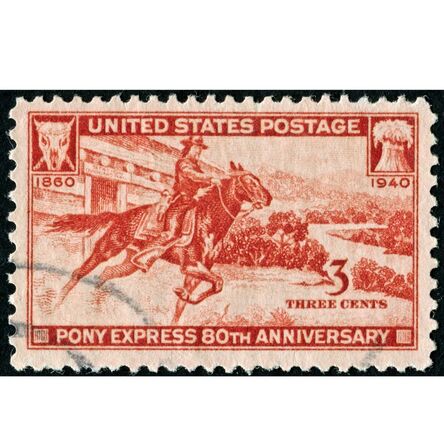 Horses have been apart of some of the most important and iconic events and moments in history. In this blog, we are going to be talking about the history of the Pony Express. Hello, everyone! We hope you've stumbled upon our blog to learn more about the best horseback riding trails in South Carolina! This weather is so perfect to be on our trials. As the weather slowly starts to turn you'll see even more beauty that the Lowcountry has to offer. Make sure to book your historic trail rides today, we can't wait to see you! We've gotten to thinking through all the historic research we've been doing for our recent blogs, and we realized that horses have been apart of some of the most important and iconic moments in the early history of the United States. Up until the early 1900s when Henry Ford made the car affordable and accessible to almost every American, the horse was right there getting us to and from everyday tasks and events, some that would forever change our everyday lives as a country. One of the most iconic events lasted a very short amount of time but has remained in history's spotlight, in our textbooks, and in our hearts ever since it ended. Today, we are going to be talking about the history of the Pony Express. The Pony Express only lasted for two years and made less than 400 runs, but it is still one of the most iconic parts of our history. Its story has lasted because of the endurance and bravery of its riders and its connection to famous people like Mark Twain and Buffalo Bill Cody. Cody was one of the Express's most famous promoters, but he never actually rode for them! He was much more of a showman. The Pony Express was born when our country was under huge changes both politically and personally. Imagine America right after the gold rush, right as Abraham Lincoln became president, and when the country was right on the brink of civil war. It was born when information needed to be delivered as quickly as possible, but a mode of transportation was not yet available. The Pony Express changed all of this. The Pony Express riders helped deliver news faster than ever before all thanks to the powerful horses that these brave riders rode. They cut down the time to carrying news from what could be a couple of months down to a few days. They did this by adding more relay stations and making use of the telegraph, according to National Geographic. Individuals could now stay in touch with their loved ones, no matter where they lived. It wasn't just private individuals that were benefiting from this new form of news delivery, newspapers and magazines relied on getting their information from the Express, too. For a total of eighteen months, the Pony Express delivered the mail faster than ever before between April 1860 and October of 1861. It helped tie the east to the west carrying some of the most important news of the time. Young men would ride what would later become the Pony Express National Historic Trail, covering eight states. It was the most direct form of communication of its time between Missouri to California. They could ride up to 1800 miles in just ten days. Millions began the move out west in the mid-1840s because of the gold rush and the Mormon exodus, according to The National Pony Express. With so many people on the other side of the country, a new form of communication was needed. In came William H. Russell, Alexander Majors, and William B. Waddell. They created The Central Overland California and Pikes Peak Express Company to deliver mail from one end of the country to the other. This would later become the Pony Express. According to the National Pony Express, shortly after the Express was created, congress authorized a bill to build a telegraph line that would run from the Missouri River to the Pacific Coast. While the line was under construction, the Pony Express delivered its letters, news, and newspapers. When the telegraph line was finally finished in 1861, the Pony Express shut down. Its last letters were delivered in November of that year. Even with its short history, it has become embedded into the history of the Wild West thanks to Wild West shows that traveled across the country and even into Europe. Ironically, these shows and the stars that made them famous (like Buffalo Bill Cody) were famous much after the Pony Express ended. It still raised public awareness about the Express and kept it alive in history. Even though it has been kept alive, a lot of the history is full of inaccuracies, wild stories, and myths according to National Geographic. Almost no records survive of this famous 18 month period. The young men who were riders for the Express would ride up to 100 miles a day and sometimes up to four times a week. They all had to follow some very strict rules like no drinking or cursing, according to National Geographic. They were facing every kind of challenge nature could put in front of them and in some of the most dangerous parts of the country. Through snowy mountain passes and dangerous deserts, they made their rides. They came into contact with Native Americans and wild animals, and all kinds of other perils. Some Pony Express riders were killed and some stations were burned down after relations between Native Americans and Americans were heated. Service even stopped in certain areas because of it, but after the stations were rebuilt, service went back to normal. Today, it continues to live on in colorful stories, reenactments, and historical locations that you can visit. Most of the original trail doesn't exist any more thanks to modern roads, construction, and time. What is believed to be left of the original trail can be seen in Utah and California. According to the National Pony Express, some 120 historic sites might soon be available to the public. What do you remember learning about the Pony Express? Have you ever visited any of its historic locations? It's incredible how much history horses helped shape and carry thanks to each ride those young men went on. Imagine how different our world would be without them! Until next time, stay safe and stay hopeful everyone! The next Year Of The Horse might not be until 2026, but for us, it's every day! We wanted to share and explore the history behind the zodiac horse and what it means to be born in a year of the horse.
We hope while you're reading this, we find you happy and well. We've enjoyed seeing so many of your friendly and familiar faces back on our trails. For those of you new to our blog or for those of you who might be unaware, we are currently open and offering our Historic Trail Rides! Enjoy the beautiful weather, the wonderful Low Country scenery, all while socially distancing on the back of a horse. We are adhering to the Governor's guidelines to help keep our staff and client safe! All saddles, bridles, and helmets are cleaned after every ride. A visit to the stables might be exactly what you need right now. This year has been a rough ride, to say the least. We've all overcome and gone through challenges in all areas of our lives. Depending on the culture, some look to Farmers Almanacs to predict or look for answers for a difficult year. Some look at astrological coincidences and others look at the zodiac sign to help explain the reasoning behind what is happening in their region or throughout the world. This year in the Zodiac calendar is the year of The Rat, and there won't be a year of The Horse until 2026. Regardless, we wanted to learn a little more about the history of the Horse Zodiac, it's personality traits, and what it could mean during the year of The rat. The most recent Year Of The Horse were 1942, 1954, 1966, 1978, 1990, 2002, 2014 and soon to be 2026.
Ironically, even if you don't believe in the zodiac signs or know much about them, 2020 does resonate with what has been predicted. We, like all of you, hope to find good luck in what's left of this year. But, if anything, learning more about this beautiful creature in the eyes of a different culture has been very interesting. What did you think? Comment below! Also, let us know if you were born in a previous year of The Horse or know anyone that was. Does their personality match the descriptions we've listed? Are you finally in the market to buy a horse of your very own? We have some tips and suggestions that can make the process smooth and simple.
This summer weather is not a joke! We love being outside with our horses and on the trails with all of you every time you visit. But, this heat index is crazy! We can't stress enough that keeping yourself and your horse hydrated needs to be your top priority right now! Don't forget your sunscreen and bug spray, too. We've seen a lot of horse flies recently, and those bites are not pleasant. Since many of us are spending a good amount of time at home right now, more of you might be thinking about buying a horse of your very own. A few blogs back we talked about some steps and what to expect when adopting a horse here in South Carolina. If you missed that blog, please follow the link below to read: https://www.middletonplaceequestriancenter.com/blog/adopting-a-horse-in-south-carolina We understand that you might want to go a different way when getting a horse of your very own. There is no wrong way of doing this, it is all a personal preference. But, before you make the big step in buying your horse, we wanted to share some tips and ideas to keep in mind before you do and while you're going through the process.
We are so excited that you are thinking about bringing a horse into your family, and we hope these tips and suggestions cleared up any questions or hesitations you might have. Until you do make this dream become a reality, don't forget we are still open for our historic horseback trail rides. They are the perfect way to get outdoors, be safely distanced, and visit with your favorite animals. For more information, please visit our website. Until you join us for your next ride, please continue to stay safe! We are Charleston's premier horseback riding trail, dedicated to keeping you safe while exploring the beauty of the Lowcountry. 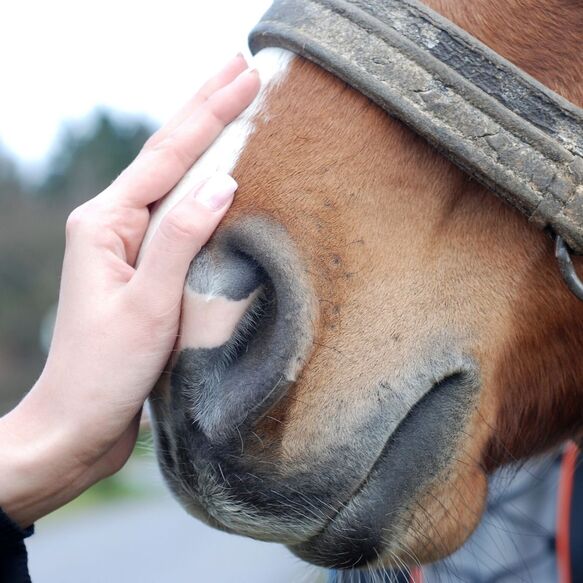 Becoming a forever home for a horse in need can be a dream come true for you and your new horse. How do you go about adopting a horse here in the Lowcountry? Friends, we have to say it. We LOVE when you visit and take one of our historical tours. Please know you are always getting the best trail rides and horseback riding experience in Charleston every time you visit. But, we know the truth of how it feels to fall in love with horses and wanting one for your very own. It comes with a big-time commitment, a big responsibility, and a can be very expensive. But, they are worth every moment and every penny. With that in mind, we wanted to share a few tips and suggestions on how and where to adopt a horse of very own here in the Charleston. Choosing to adopt and buy one from a breeder is a personal choice, and whichever you decide is perfectly fine. We just wanted to share the adoption process with you first, and talk about some wonderful organizations that can help your dreams come true.
https://learnhorserescue.org/adoption-application%2Finfo 2. Big Oakes Rescue FarmLocated in Hodges, SC this rescue farm is dedicated to the care of horses, donkeys, mules, and more! The sanctuary was founded in 2007 by Joe Mann, who has a passion for saving animals. They strive to give these animals a new life and home along with providing education to the public about awareness of animal care, welfare, and abuse. Since 2010, they have also rescued and rehabilitated over 300 horses and found them brand new homes. Big Oakes also has an extensive application that you must fill out before an adoption can happen. You have to describe where the horse will be living, along with providing pictures of where they will be living, where they will be fed, and where they will exercise. You must provide your personal information, along with your farrier's and vet's information. They will also be calling your vet as part of the application process to talk about your history with animals and if you would be a good potential horse owner. To learn more, begin the application process, or donate to their cause visit their website below! https://www.bigoaksrescuefarm.org/ 3. H.O.P.E ACRES RESCUE (Helping Our Precious Equines) Located in Berkeley County, SC they provide rescue services to horses across the country. Thanks to community, country, state, and donation support they can save, rehabilitate,and give a safe home to horses in need. From the very beginning of the adoption process, HOPE makes it very clear that every potential family must understand the financial and physical demands of owning a horse. Their multipage application is also very detailed. The questions range from wanting to know about you, your knowledge of horses, who will be riding and caring for the horses, what your style of riding is, what activities you have planned for your horses, and more. The HOPE farm also has very specific requirements that must bet met before being considered for adoption including:
http://www.hopeacresrescue.org/ Horses are magical creatures and those who take the time to save and care for ones who have been through the worst are heroes. Consider donating, learning more about horse welfare education, and maybe even adopt one someday. Until you join us for your next ride, please continue to stay safe! We are Charleston's premier horseback riding trail, dedicated to keeping you safe while exploring the beauty of the Lowcountry. Curious about what you might find when riding on our trials or on trails of your own? Here are some important accessories you need to know about!
Happy June, everyone! Let's continue to get back in the saddle one day at a time. When joining us for your next trail ride, there might be a few needed accessories that you might not know what they are or what they do. Don't worry! We are here to help guide you. Also, everything you need for your next visit with us will be provided. We are taking very serious steps to keep our guests and employees very safe. Everything you touch and come in contact with will be very safe and clean. But as you prepare to come to visit us, we wanted to share some information about some important trail riding accessories. This information is also great for those who want to explore trails out in the wild or who might want to invest in their trail riding equipment. Don't forget, our historic trail rides are open and available to the public. You don't want to miss this beautiful and unique experience this summer! Each of the items we will be talking about today makes riding and any experience on or with a horse much more prepared, easier, and comfortable for both parties involved. They help keep the quality of the ride enjoyable and can come in handy to keep you safe and protected in any situation.
Have you seen or used some of these accessories before? Or are they all new to you? We are excited to help continue and nurture any education when it comes to our beautiful horses and everything it takes to ride them safely and properly. The trails are calling you, so what are you waiting for? Until you join us for your next ride, please continue to stay safe! We are Charleston's premier horseback riding trail, dedicated to keeping you safe while exploring the beauty of the Lowcountry. |
AuthorMiddleton Place Team Archives
January 2021
Categories
All
|
|
4280 Ashley River Road, Charleston, SC 29414
middletonplaceequestriancenter@outlook.com 843-735-0709 Please also visit: Middleton Place | The Inn at Middleton Place |
Site powered by MadeSimply
|
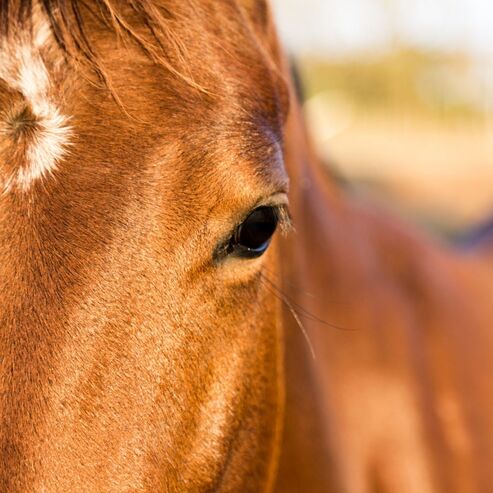
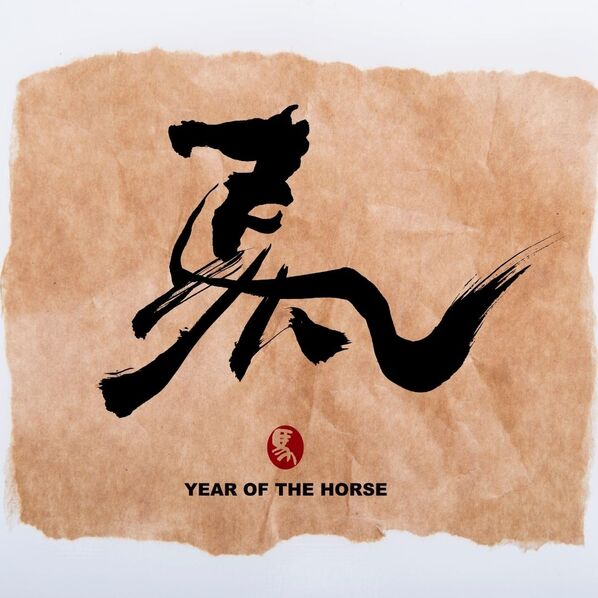
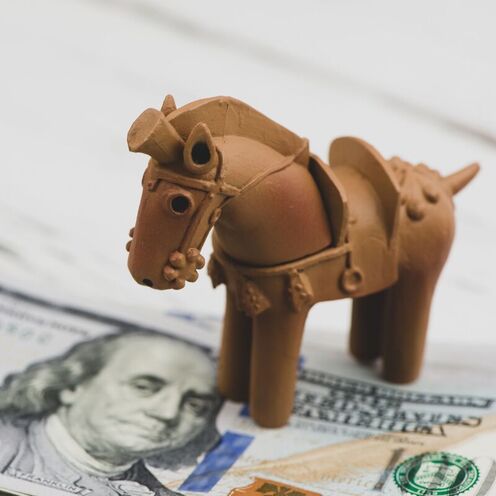
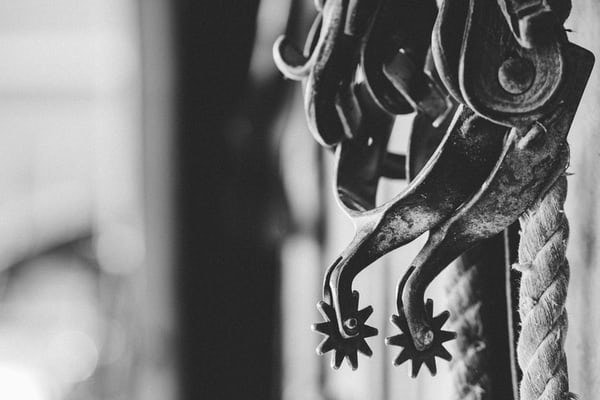
 RSS Feed
RSS Feed

